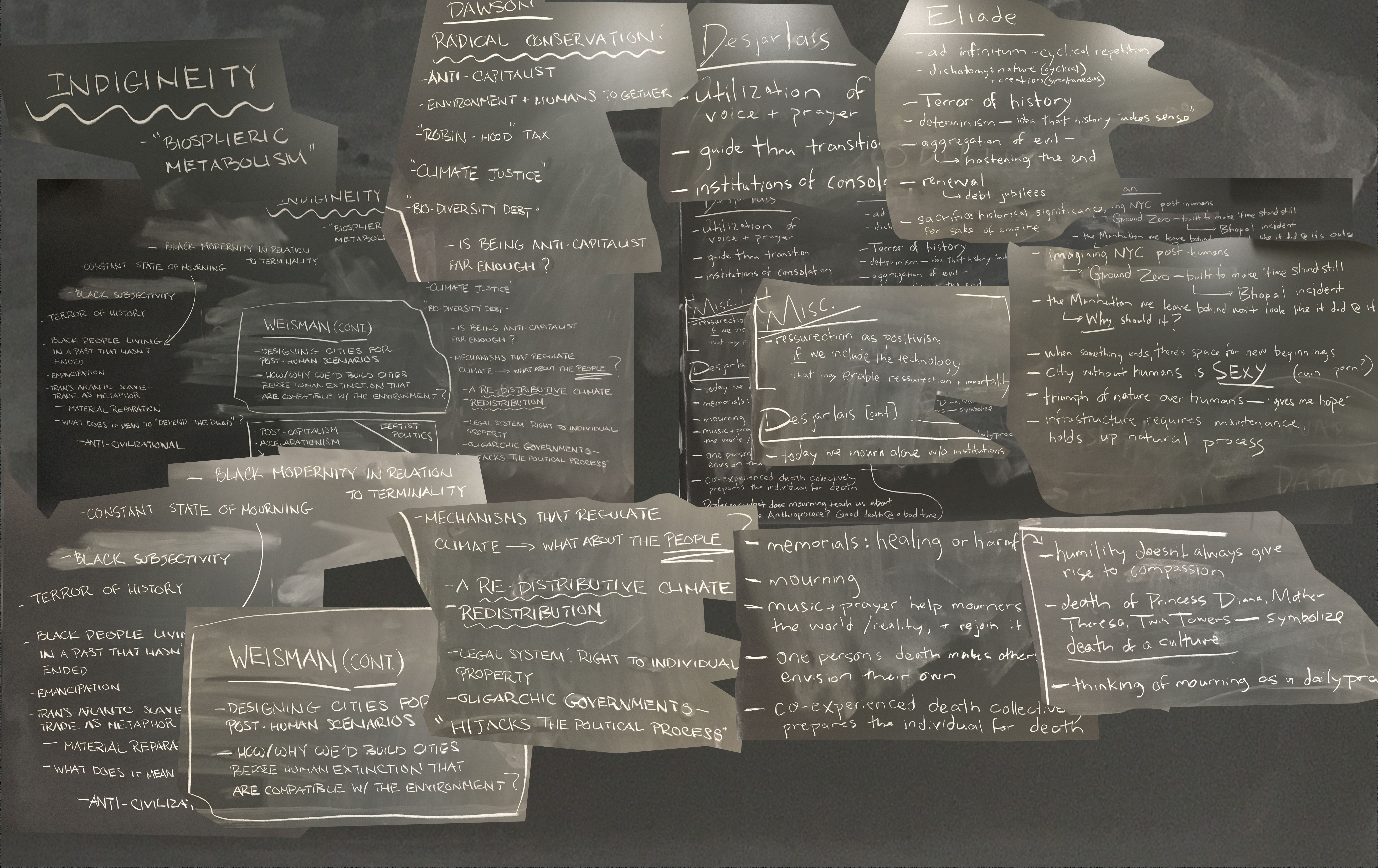Group 1: Armando Dollero, Ousmane Sow, and Oscar Fossum
It was a pleasure to have the opportunity to discuss the Voluntary Human Extinction Movement (VHEMT) with its founder Les Knight. In relation to our texts this week, it was great to have the chance to interview the founder of a movement which uses fears of human death and extinction to advance a philosophy. In the case of VHEMT, the philosophy was to lead humans toward extinction, rather than to create fears about human extinction.
Our group found some issues in the philosophy of the VHEMT group. Primarily, we were confused about the normative argument that VHEMT was making about the value of the earth without humans in it. For example, what is the possibility that another species post-human extinction becomes overpopulated to the point of worldly destruction? Would that matter? Does earth have intrinsically “good” qualities without human life? What do these “good” qualities matter if not to be appreciated by humans? Why is VHEMT adamant about complete human extinction, rather than population reduction? Though we did not get to ask all of these questions, we hoped to begin to challenge some of the logic of VHEMT’s claim to the benefits of complete human extinction. The questions, and Mr. Knight’s answers are included in the bullets below.
- Armando question: Does VHEMT’s goal of total human extinction intrinsically claim that other species are of more worth than homo sapiens?
- Mr. Knight response: good question, and I get that fairly often. It does seem that we are putting 10’s of millions of other species ahead of humans. But, just as one of your toes on your body cannot be more important than the entirety of the body, then one species could not be more important than the entirety of the world’s species and the biosphere.
- Oscar follow-up question: if one species (humans) could not be more important than all other species, do you believe there an inherent importance of the earth’s biosphere? Is earth “important” without human subjectivity?
- Mr. Knight response: There’s is a movement called “efil-ism” (life spelled backwards) which promotes a philosophy that all life should not exist because of the inherent suffering in life. I don’t think that we have any intrinsic value in our lives: we have to give our lives meaning through our own subjectivity. Ultimately, though, I believe the world is not ours to determine the fate of.
- Armando response: then who is responsible for determining the fate of the world?
- Mr. Knight: I think that’s kind of a human consideration. The world has a right to exist outside of human determinism.
- Armando response: then who is responsible for determining the fate of the world?
- Mr. Knight response: There’s is a movement called “efil-ism” (life spelled backwards) which promotes a philosophy that all life should not exist because of the inherent suffering in life. I don’t think that we have any intrinsic value in our lives: we have to give our lives meaning through our own subjectivity. Ultimately, though, I believe the world is not ours to determine the fate of.
Upon reflection on his answers, our group wonders if the VHEMT isn’t also a human attempt to alter the course of the world’s history. Doesn’t the observation of humans as destructive to the world simply re-affirm the idea that the only “good” in the world is based on human subjectivity? If so, is this not a contradictory philosophy? If we had the time to ask further questions, our group might ask Mr. Knight what he thinks the inherent value of the world is, devoid of human subjectivity. After all, one might idealize the image of a world untouched by modernization and human alteration, but doesn’t this ideal itself reflect a human desire to construct one’s own environment?

Recent Comments